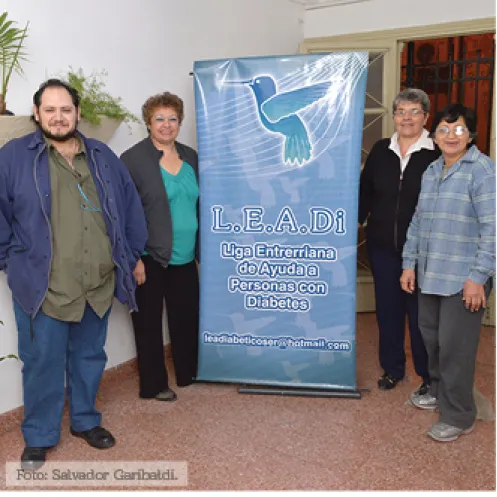Between May 22 and 25, the Entrerriana League for helping people with diabetes will carry out the XIII Recreational Educational Meeting for Children, Adolescents and Youth with Diabetes • The camp was declared of interest to the Chamber of Senators of the Nation and alsoadhered the Chamber of Deputies of Entre Ríos
It is planned to start the days on Friday night and extend them until Monday 25, after breakfast.
The meeting will take place in the facilities of the Hogar School complex, where around 80 boys from the age of eight to young people of 32, all with diabetes 1, which implies that they are insulin dependent.
In this area, attendees share life experiences, instances of their daily lives with the disease, while contained and advised by professionals of the endocrinology, diabetes and nutrition service of the San Roque Maternal Hospital, psychologists and physical education teachers.This year the Uader will be added, which has a program with Nursing and Physical Education professionals.
"Healthy eating, physical activity and psychological guidelines to assume the disease are the pillars of this camp which, unfortunately, increasingly young people participate," said Silvina Vismara newspaper, president of Leadi.
In this regard, he stressed the participation of children and young people from all over the province to whom assistants from Corrientes, Buenos Aires, Córdoba and San Luis will join.
"There will be around 80 participants, and some of them will arrive accompanied by their parents, so we assume that in total there will be 100 people who will be present on the days of the camp," he said.
sharing experiences
Vismara emphasized the diabetological education guidelines that are taught in this type of meetings, with the purpose of improving the quality of life of those who suffer from this disease that will accompany them all their lives.
"Diabetes must be cope with day by day, so we make efforts so that they can improve both their health education and their autonomy," he explained.In fact, in these instances many children learn to inject insulin alone, gaining autonomy of their parents.At the same time, parents who accompany their children in this camp receive psychological containment and guidelines to contribute to the development of their children.
“In this area, attendees are in similar situations and so they know that they are not the only ones to go through this;Even if the approach is done through games, sharing experiences while having fun, ”said Vismara at the time of detailing the planned activities.
Assistance
A very big effort is made to achieve resources and be able to carry out a camp where all the practices that do every day individually to carry out their treatment are revealed: apply insulin, to make controls, eat what they have indicated in the planFood, do physical activity, all bases of treatment that are revealed in a coexistence with the entire health team.Attentive to this reality, from the Ministry of Health of the province they promised to provide help to the event organizers, while Leadi raised a note to the mayor of Paraná, Blanca Osuna, requesting the help of the municipality.
Family containment
People with type 1 diabetes need insulin and it is key that they learn to do controls with a device, interpret blood sugar values (blood glucose) and inject insulin.All of that is training, to which they must add awareness about what they can eat and what not, how many grams of carbohydrates have meals, how many insulin units areThey have to do based on what they eat and all that is learning.
That is why the need to train the child and his family to keep the disease is reinforced.
Incorporating these habits is not simple and even less when it comes to children, so containment and family commitment become fundamental.


